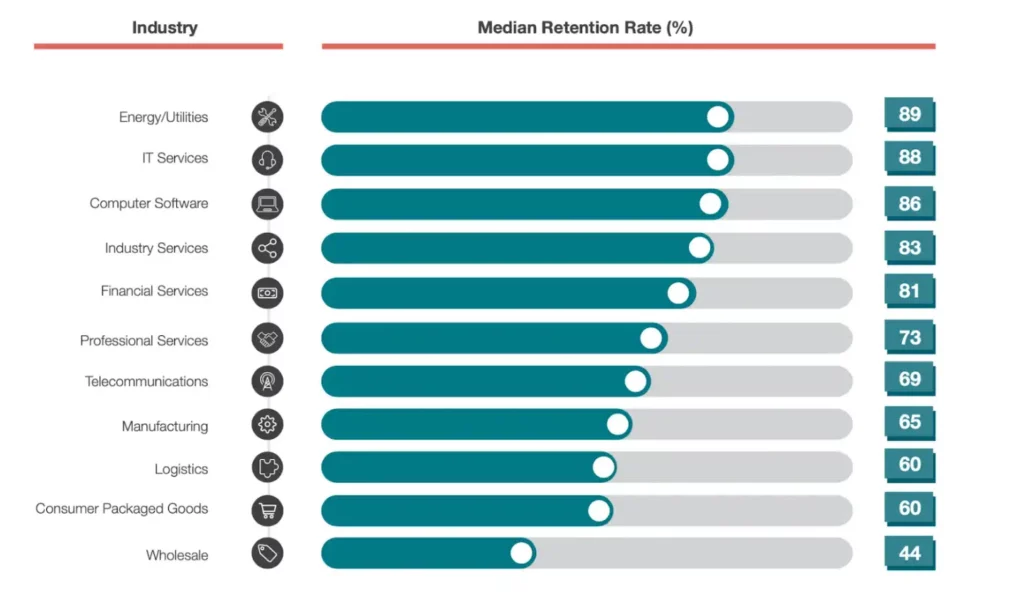

Last updated on

Acquiring and parting ways with clients is an unavoidable aspect of agency work. Employ these guidelines to ensure smooth transitions and uphold favorable relationships.
Embracing and relinquishing clients are inherent aspects of the agency industry. However, by implementing effective procedures, you can facilitate client transitions and uphold positive connections, regardless of the circumstances.
Now, let’s delve into the optimal methods for welcoming new clients aboard and gracefully concluding relationships with those who depart. These practices will enhance the overall client experience, expedite project commencement, and set the stage for future referrals.
Managing client transitions seamlessly
Being a search agency, constantly striving to secure new business is a perpetual challenge. This endeavor involves a multitude of pitches, opportunities, and ongoing efforts to showcase our capabilities.
Conquering the realm of new business acquisition is no small feat, particularly in an industry where the margin between triumph and defeat is razor-thin.
While winning new clients is undoubtedly a triumph, it’s crucial to acknowledge that victories are invariably accompanied by setbacks and client attrition.
In the realm of professional services, a sector that encompasses a broader spectrum than search agency work, a Customer Gauge report indicates a substantial churn rate of 27%.

Although professional services cover a wider range of services, turnover is an inescapable facet of our industry as well.
Within our agency, we’ve honed our onboarding and offboarding processes into pivotal practices that not only enhance the client experience but also expedite workflow and elevate our Net Promoter Score (NPS), even when clients choose to part ways.
Onboarding PPC clients
Learn the business
Certainly, winning the business is a testament to our expertise in search marketing, and we appreciate the recognition!
However, regardless of our prior experience in the field or industry, it’s imperative to immerse ourselves in the intricacies of their specific business.
When delving into a new business, we focus on two essential aspects:
Set expectations
In a new client relationship, establishing clear expectations about our work processes and what clients can anticipate from us is paramount. This is where a proficient project and account management team truly excels.
Here are some key points to address and clarify:
By addressing these details upfront and ensuring mutual understanding, we can establish a strong foundation for a productive and successful partnership with our clients.
Be curious
Absolutely, being hired for a specific role shouldn’t limit our curiosity and engagement with the broader aspects of the business.
While our primary responsibilities may not involve building landing pages or crafting copy, it’s crucial to grasp the processes behind these tasks, as they are integral to our overall success.
Here are some actions we can take to enhance our understanding and effectiveness:
By maintaining a curious and proactive attitude, we can go beyond the surface and gain a deeper understanding of the business, which in turn enhances our ability to meet our objectives and provide valuable insights.
Offboarding PPC clients
The golden rule
Treating others as you wish to be treated is a fundamental principle that is sometimes overlooked. This principle remains straightforward yet is frequently disregarded.
When a client decides to leave, it may stem from significant issues or simply a shift in leadership. The new manager might prefer to assemble their own team, even if you have consistently delivered a 60% annual improvement.
I’ve personally encountered both scenarios, and neither is enjoyable, albeit for different reasons. Nevertheless, it’s crucial to view these situations as purely business decisions. When such a decision arises, it’s important to keep in mind that the future is uncertain.
Companies evolve, individuals change workplaces, and new products are introduced. Interestingly, we recently regained a piece of business we had lost a year ago.
I firmly believe that adhering to the golden rule played a pivotal role in us receiving that call to return and assist. I’m pleased to report that our current relationship with the client is thriving.
Share
Sharing can be a challenging concept to embrace, especially when you believe that your work was distinctive and proprietary. While some aspects of your work may indeed have been unique, it’s important to acknowledge that if a client is leaving, they might not have held your work in high regard.
Assisting departing clients in a manner that ensures they retain their data and account can leave a positive impression.
For instance, we recently learned about a situation where a client was parting ways, and their previous agency intended to charge them for access to their account.
This approach can have a negative impact on both the client and the agency taking over the account. It’s crucial to remember that the business often thrives on referrals. Failing to share or cooperate in such situations does not convey a message of willingness to foster referrals.
Ask for feedback
Losing a client account can be challenging, but it’s essential to view it as an opportunity for growth and self-improvement. Reflect on why the client decided to part ways with your business and consider what could have been done differently.
Conducting both internal and external post-mortems is crucial. Sometimes, the reason is straightforward, such as a new Chief Marketing Officer bringing in their preferred agency. However, in more complex cases, there may be factors that you could have influenced.
Did you rely too heavily on junior team members for this account?
Did you fail to craft a compelling narrative around your work or the prevailing market dynamics?
Is this feedback consistent with experiences on other accounts with a similar team composition?
Is there a proactive approach you can adopt to secure future new business opportunities?
Use the loss of this account as a stepping stone for improvement and growth, addressing any issues and refining your strategies for future endeavors.
Handle client transitions with grace
Client turnover is a common occurrence in the agency industry. Yet, by adopting effective onboarding procedures for new clients and handling offboarding with finesse, you can minimize disruptions, uphold positive relationships, and even stimulate referrals.
One powerful way to foster trust and set the stage for future success is by seeking feedback during these transitional periods. By implementing well-defined processes, your agency can ensure that the onboarding and offboarding experiences are as seamless as possible.
Original news from SearchEngineLand